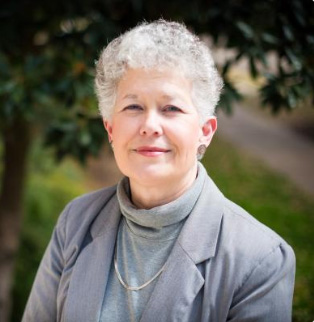By DR. SARA KIMMEL

As we continue our Mission Mississippi 2022 series with the theme A Deeper Dive into the Racial Divide through Deeper Relationships, our focus this month is on deeper questions.
For those of us who grew up in Mississippi, place or community is part of how we get to know people, and we establish connections through four questions: (1) Where’re you from? (2) Where’d you go to school? (3) What do you do? and (4) Where do you go to church?
Our second-round questions usually identify common relations and experiences based on the first-round questions: (1) Do you know (insert name from town, school, work or church)? (2) Do you remember when (insert event from town, school, work or church)? In 20-30 seconds, we establish likeness or otherness.
Deeper questions require trust. Trust requires relationship and a willingness to be vulnerable … or wrong. Deeper questions almost always start not with who, what or where, but why.
In his testimony to Agrippa, the apostle Paul details his journey to Damascus, his witnessing a light brighter than the sun, his collapse to the ground, and the confrontation by Jesus with one deep question: “Saul, Saul, why are you persecuting Me?” Saul had spent decades since the crucifixion persecuting followers of Christ, which Christ counts as persecution of Himself. Saul’s singling out Christ followers as heretical in first-century Rome underscores our own sense of “other” — those who don’t belong.
Like Jesus’ deep question to Saul, deep does not imply eschatological or theological. The discomfort of our answers is deep, ingrained, and shaped by the complex intersection of attitudes, experiences, families, history, culture, education, economy and church. Our response can be as individualized as Paul’s, but the question is for us all, regardless of town, work, school, church, associates, experiences, age, gender or race. “Why are you persecuting Me?” Saul’s response to Jesus is telling: “Who are you, lord (little lord)?” Saul was one of us. This was his way of asking, “Where are you from, where’d you go to school, where do you work, where do you go to church”? Are you us or are you them? Are you same or other?
Saul knew he was a persecutor, but he (like we) had a self-righteous reason for every persecution he had participated in. Saul didn’t answer the why question. Jesus changed his heart, raised him up, and said, “Your why is not okay. Here’s what we are going to do about it! I am going to send you to the very ‘others’ you persecuted.”
As a college student, a young arrogant me asked the age-old, why-do-I-have-to-take-this-class-and-what-does-it-have-to-do-with-anything question. A wise person told me (and I try to share this with my students): Let’s rephrase your question. I think you mean to say, “What does this have to do with EVERYTHING?” Once the question changed, so did my attitude and outlook. I became more inquisitive and sought meaning instead of just answers. A character trait of Mission Mississippi is the organization’s insistence that we reframe our question from, “What does this have to do with anything?” to “What does this have to do with EVERYTHING?”
In the spirit of “What are we going to do about it?” (and at the risk of meddling), here are a few questions for us to consider together:
◆ Who do I consider to be “other”? Why?
◆ Where do I live? Why?
◆ Where do my children go to school? Why?
◆ What church do I attend? Why?
◆ Where am I spending my money? Why?
◆ Are there communities I avoid? Why?
◆ What do I fear? Why?
◆ What does this have to do with EVERYTHING?
Are you and I willing to change direction, get to our feet, and do what’s next? God wants our differences celebrated, not depreciated. Join Mission Mississippi as we explore these questions in deeper dialogue with one another. #DeeperQuestions
Dr. Sara Kimmel is an associate professor at Mississippi College, where she teaches international business and sponsors the Service Club.

